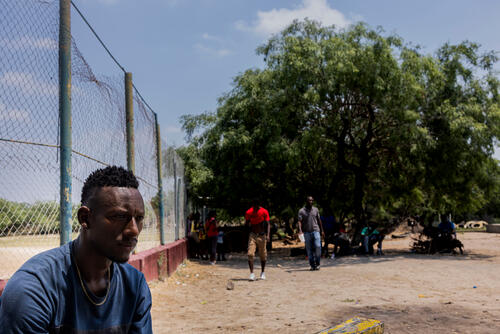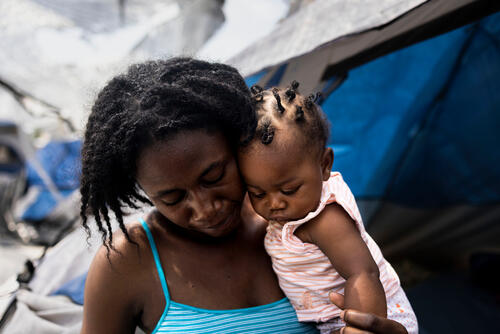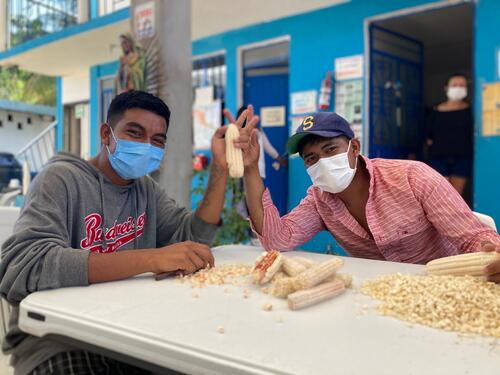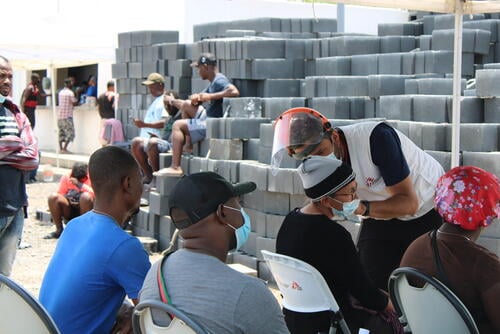- Despite the end of Title 42, obstacles and the lack of legal options to reach the US will continue to have a serious impact on the health of people seeking asylum.
- Médecins Sans Frontières (MSF) calls for a dignified and safe asylum system to be reestablished for all people seeking asylum at the US southern border.
On 11 May, as the Biden administration ended the COVID-19 public health emergency nationally, Title 42, a public health order used to shut down asylum at the US southern border for more than three years, officially came to an end.
Invoked by the Trump administration in 2020 and repeatedly extended by the Biden administration, Title 42 allowed the blocking and expulsion of people seeking protection at the US southern border.
Médecins Sans Frontières (MSF) teams in cities such as Reynosa, Matamoros, Piedras Negras and Ciudad Acuña witnessed how this policy left people in vulnerable circumtances without access to basic health services and exposed thousands of people to insecurity, extreme weather, a lack of shelter and insufficient access to food.
“The tightening of measures against people seeking asylum and the lack of efficient legal options to reach the US has a serious impact on the health of migrants,” says Adriana Palomares, MSF head of mission in Mexico and Central America. “It is urgent that a dignified and safe asylum system be reestablished for all.”

Title 42 was used to authorise over 2.8 million expulsions from the US to cities along the US-Mexico border and caused a humanitarian catastrophe for migrants seeking safety and well-being in the US. For three years, this policy left thousands of people abandoned with limited access to shelter or basic services, and often left them at risk of violence in cities that do not have the security or resources to meet their massive needs.
“It’s great news that Title 42 will finally end. It falsely used public health to block people from seeking asylum and put countless people in danger,” says Palomares. “We were hoping that processes to welcome those seeking protection will be restored with the end of Title 42,” she says.
“Unfortunately, the Biden administration appears focused on erecting new barriers to accessing asylum, including through the final rule released yesterday, which will bar many people from accessing the protection they desperately need. We know that policies of deterrence don’t work, and all this will do is expose more people to violence and danger,” she says.
The Biden administration promised to build a safe, fair and humane immigration system. Instead, it has continued or expanded ways to keep people from seeking asylum at the US southern border.Adriana Palomares, MSF head of mission in Mexico and Central America
In addition to a slew of new immigration policies recently rolled out by the Biden administration, once Title 42 expires, the US government will return to processing migrants under existing US immigration law, known as Title 8. Under Title 8, migrants can face a fine or penalty before being deported. If caught trying to re-enter the US, they can face criminal charges and be banned from entering the country or seeking asylum for five to 20 years.
“The Biden administration promised to build a safe, fair and humane immigration system,” says Palomares. “Instead, it has continued or expanded ways to keep people from seeking asylum at the US southern border. For many of the patients we treat along the migration route, returning home is not an option,” says Palomares.
“Pushing migrants back, detaining them, abandoning them, or purposefully making the process so difficult that they just give up their quest to reach the US is a cruel policy that only endangers people,” she says.






